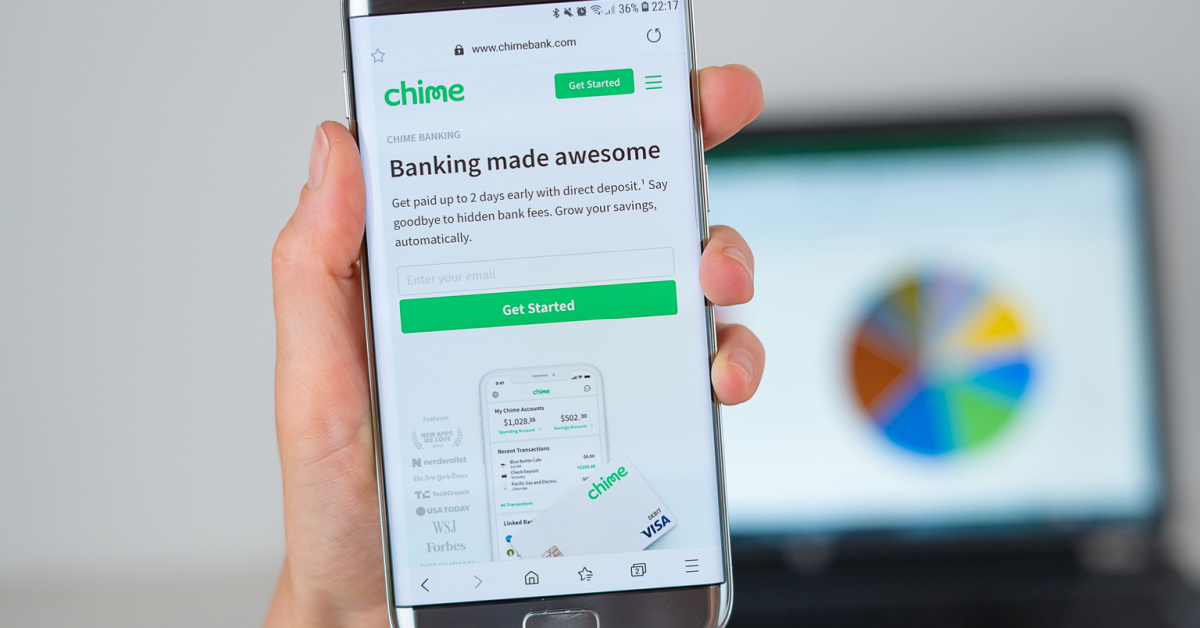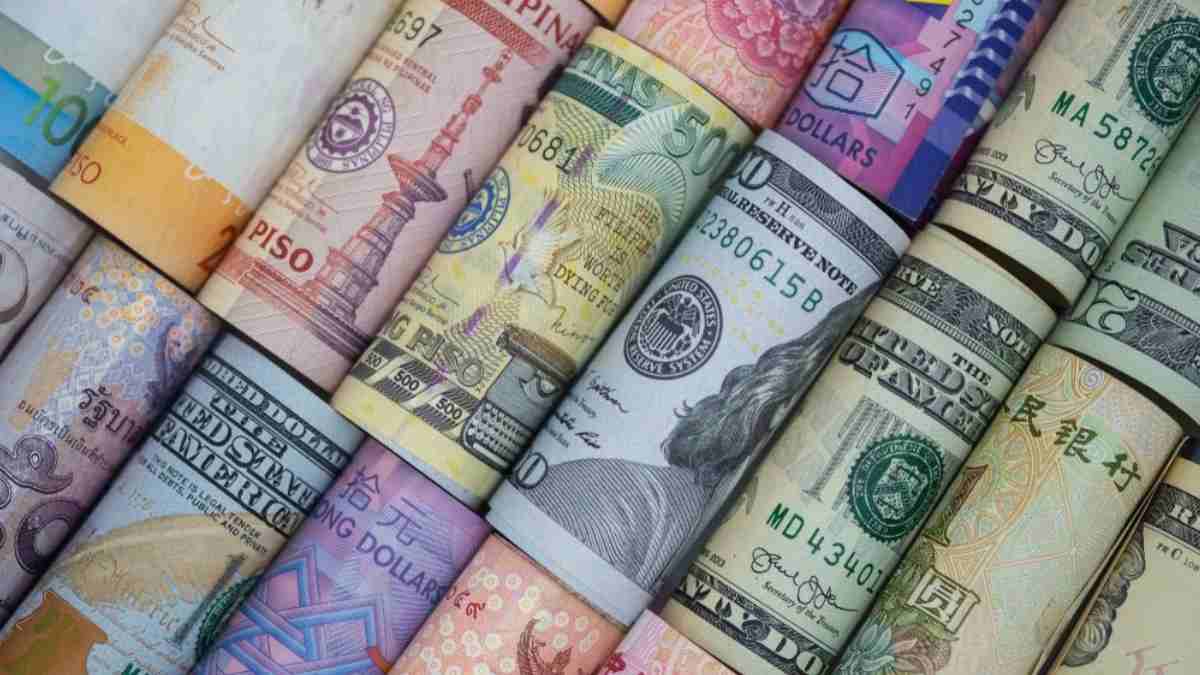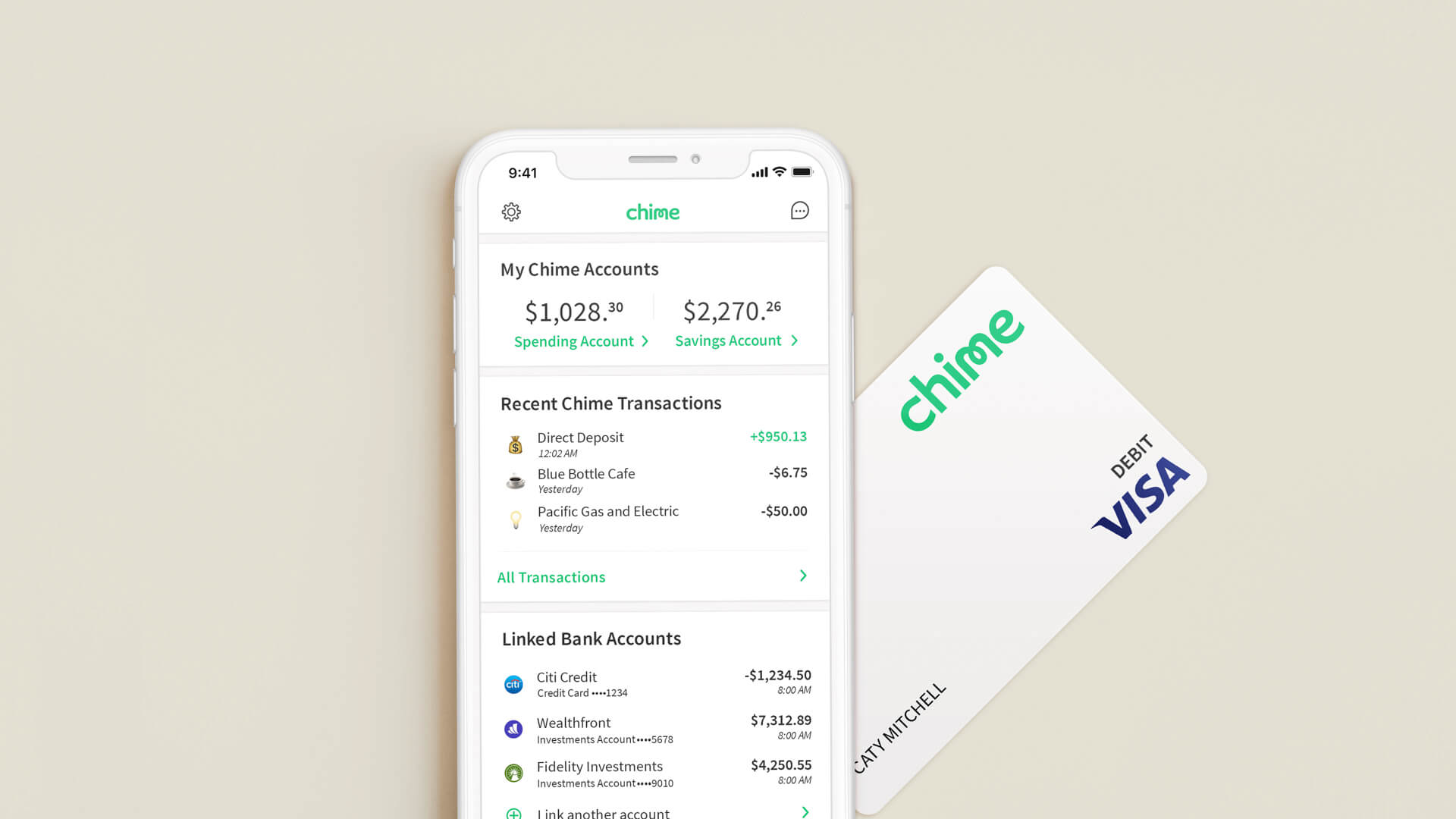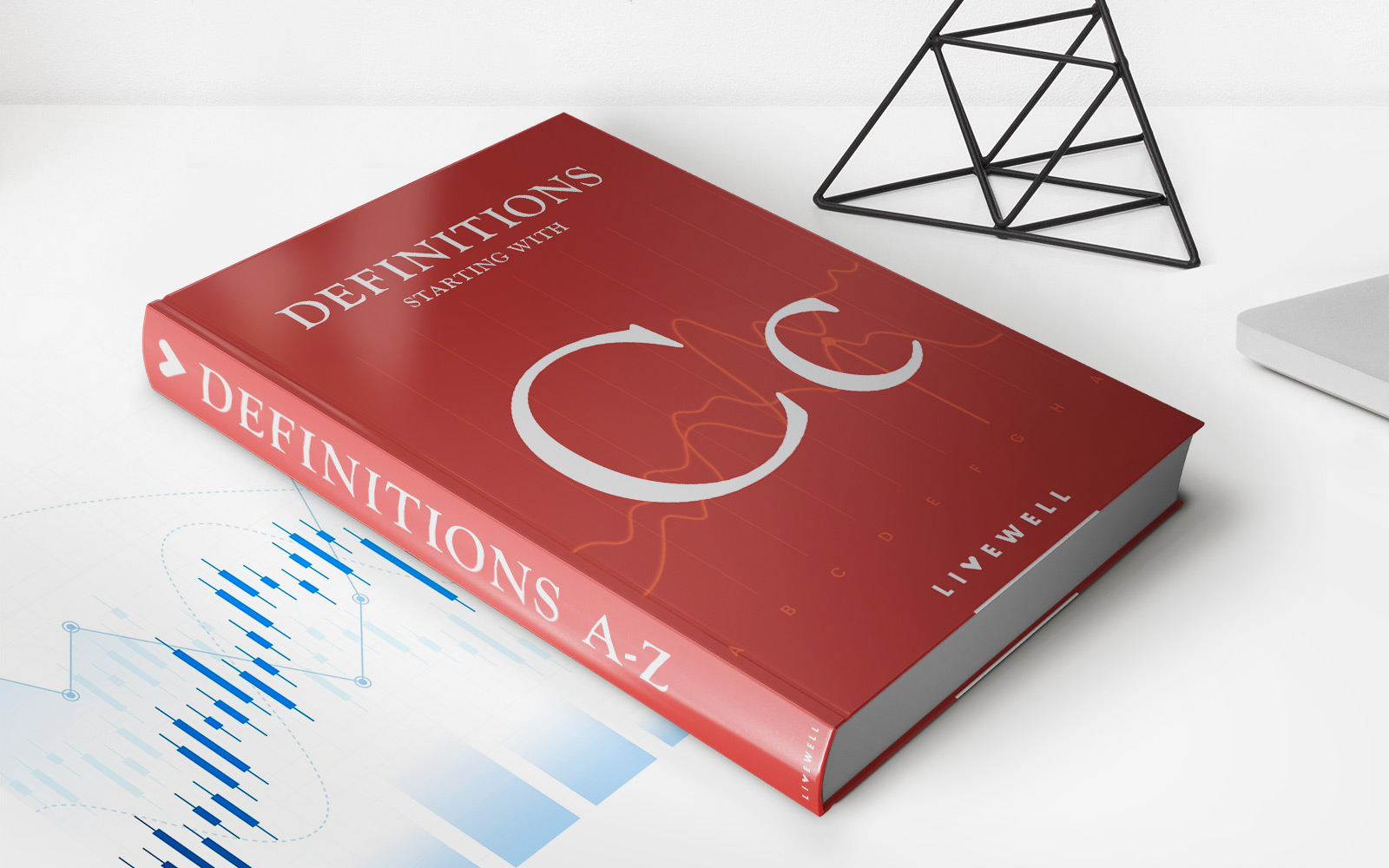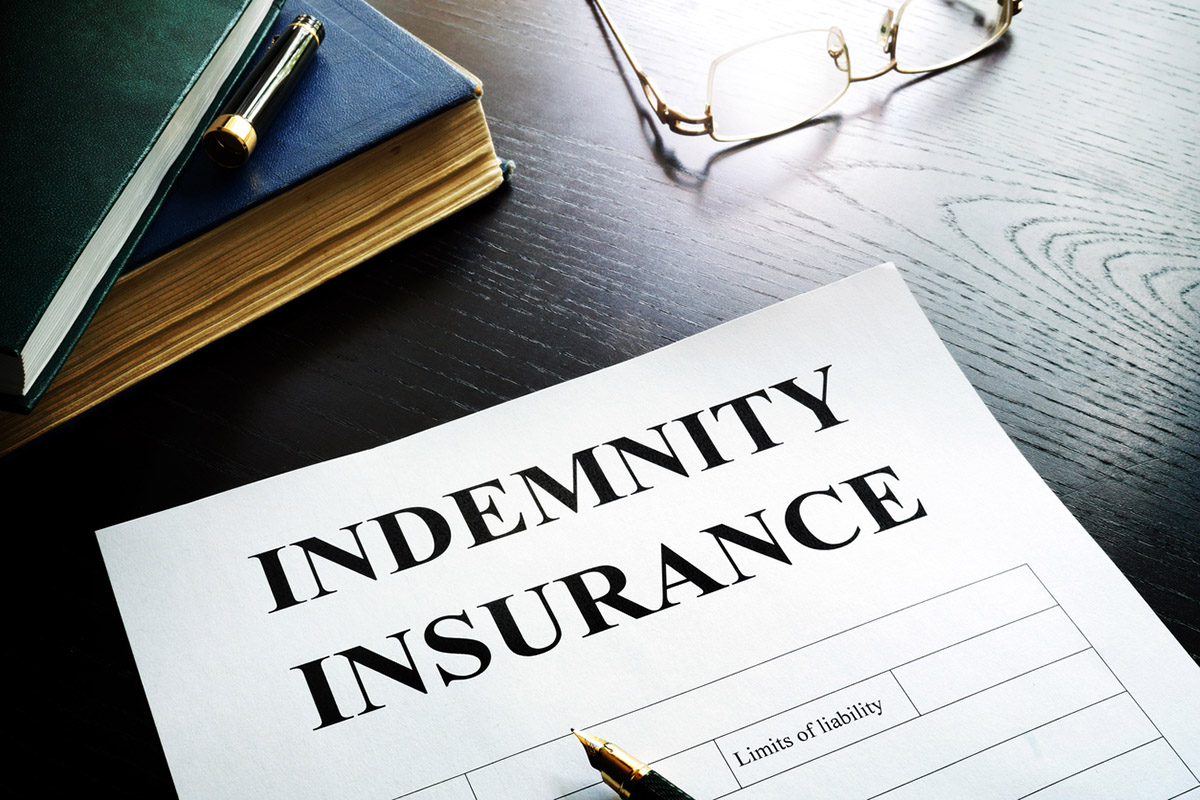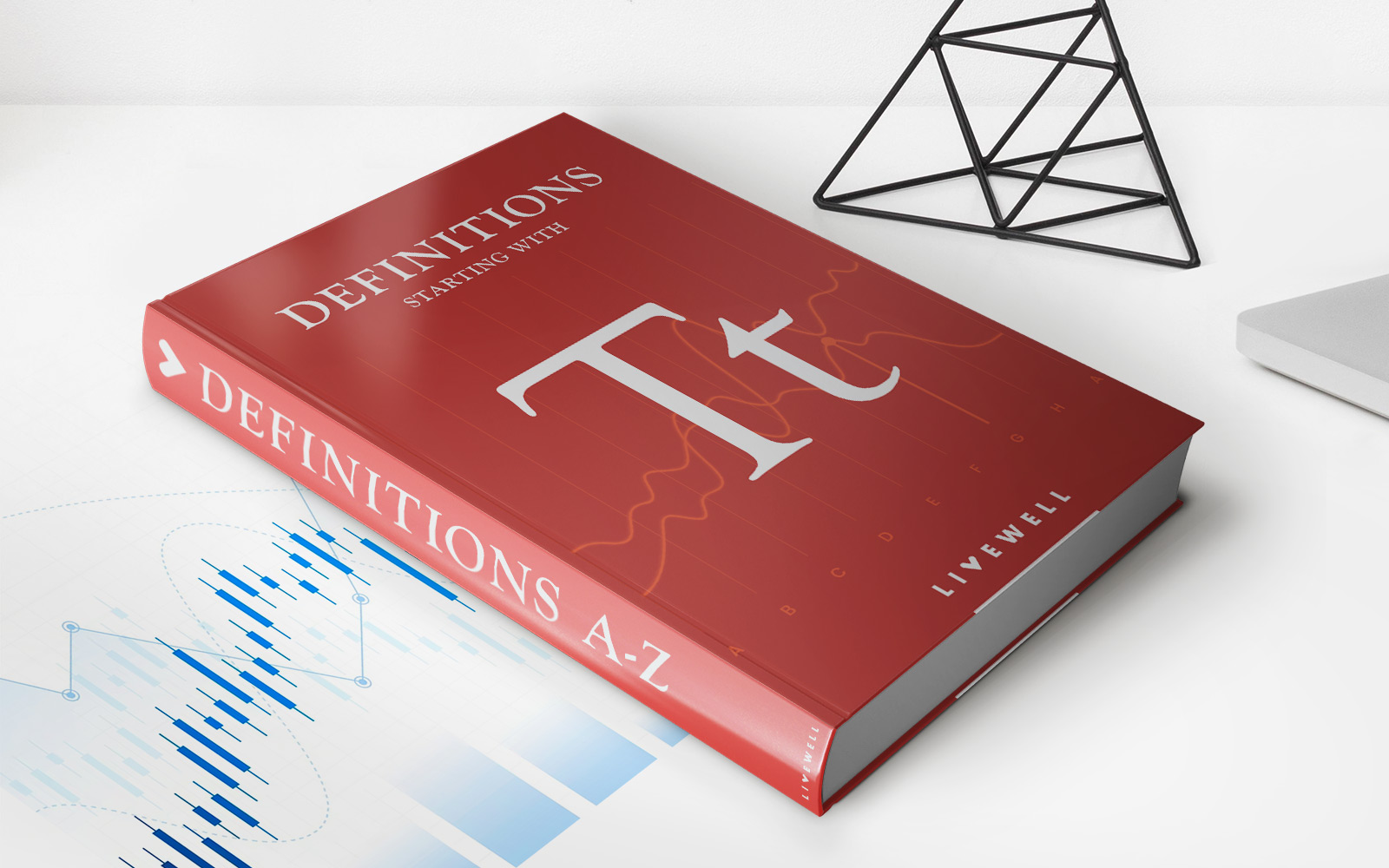

Finance
How To Save Money In Inflation
Published: October 19, 2023
Learn how to save money and navigate through inflation with our expert finance tips and strategies. Start securing your financial future today.
(Many of the links in this article redirect to a specific reviewed product. Your purchase of these products through affiliate links helps to generate commission for LiveWell, at no extra cost. Learn more)
Table of Contents
Introduction
Welcome to the world of finance, where understanding and managing your money is the key to financial stability and success. Inflation, a continuous increase in the prices of goods and services, is an important concept to grasp when it comes to personal finance. As prices rise over time, the purchasing power of your money decreases, making it essential to find ways to save and protect your hard-earned cash in an inflationary environment.
In this article, we will explore the impact of inflation on your finances and provide you with valuable tips on how to save money in inflation. From cutting expenses to investing wisely, we will equip you with the knowledge and strategies you need to navigate these challenging economic times.
Understanding inflation is the first step towards effectively managing your finances. Inflation occurs when there is an increase in the overall price level of goods and services in an economy over a certain period of time. It is typically measured using the consumer price index (CPI), which tracks the prices of a basket of commonly purchased goods and services.
When the rate of inflation is high, your money will buy you less than it did before. Prices for everyday items like groceries, transportation, and utilities will increase, putting a strain on your budget. By understanding the impact of inflation on your finances, you can take proactive steps to protect your purchasing power and stretch your dollars further.
Throughout this article, we will provide you with practical tips on how to save money in inflation. From cutting expenses to seeking discounts, we will cover a range of strategies that can help you navigate the challenging financial landscape. By implementing these tips and making smart financial decisions, you can safeguard your savings and thrive in an inflationary environment.
Understanding Inflation
Before delving into ways to save money in inflation, it’s important to have a solid understanding of what inflation is and how it affects the economy. Inflation refers to the sustained increase in the general price level of goods and services over a period of time. It erodes the purchasing power of money, as the same amount of currency can buy fewer goods and services.
Inflation is usually measured by the consumer price index (CPI), which tracks the average change in the prices of a basket of consumer goods and services. Central banks and governments closely monitor inflation rates to ensure economic stability and make appropriate monetary and fiscal policies.
There are several causes of inflation, including:
- Demand-Pull Inflation: This occurs when aggregate demand in the economy rises faster than the supply of goods and services. When there is excess demand, businesses can increase prices, leading to inflation.
- Cost-Push Inflation: This type of inflation is caused by an increase in production costs, such as wages or raw materials. When businesses face higher costs, they pass them on to consumers through higher prices.
- Monetary Inflation: When there is an increase in the money supply in an economy without a corresponding increase in production, it can lead to inflation. This is typically the result of excessive money printing or easy credit conditions.
The impact of inflation on individuals and households can be significant. As prices rise, your disposable income may decrease, putting a strain on your budget. It’s crucial to understand the effects of inflation to make informed financial decisions and protect your purchasing power.
One important concept related to inflation is the difference between nominal and real interest rates. Nominal interest rates refer to the rate of interest before adjusting for inflation, while real interest rates account for inflation. If inflation is higher than the nominal interest rate, the real interest rate becomes negative, meaning the purchasing power of your savings is decreasing over time.
Inflation can also have an impact on investments. Different asset classes, such as stocks, bonds, or real estate, can be affected differently by inflation. Some assets, like stocks, may provide a hedge against inflation, while others, like fixed-income investments, may be negatively impacted.
Now that we have a better understanding of inflation and its impact, let’s explore some practical tips for saving money in an inflationary environment.
The Impact of Inflation on Your Finances
Inflation can have a significant impact on your finances, affecting your purchasing power and overall financial well-being. Understanding the impact of inflation is crucial for making informed financial decisions and protecting your hard-earned money.
One of the main ways inflation affects your finances is by eroding the purchasing power of your money. As prices rise, the same amount of money can buy fewer goods and services. This means that you need to spend more to maintain the same standard of living.
For example, let’s say you saved $1,000 a few years ago. In an inflationary environment with an annual inflation rate of 3%, the purchasing power of that $1,000 would decrease over time. After one year, you would need $1,030 to purchase the same goods and services that $1,000 previously bought.
Over a longer period of time, the impact becomes even more pronounced. After five years of 3% annual inflation, you would need approximately $1,159 to maintain the same purchasing power. This means that if you don’t take steps to combat inflation, your savings will gradually lose value.
Inflation also affects your disposable income. As prices increase, your expenses may rise faster than your income. This can put a strain on your budget and make it more challenging to meet your financial goals, such as saving for retirement or paying off debt.
Inflation impacts different expenses differently. Some goods and services may experience higher price increases than others. For example, healthcare costs and education expenses tend to rise faster than the average inflation rate. This means that if you have significant healthcare or education expenses, you may need to allocate more of your budget to cover these increasing costs.
Furthermore, inflation can affect interest rates and borrowing costs. Central banks may raise interest rates to combat rising inflation. If you have loans with variable interest rates, such as adjustable-rate mortgages or variable-rate student loans, your monthly payments could increase when interest rates rise.
Although inflation can have negative implications for your finances, there are strategies you can employ to mitigate its impact. In the following sections, we will explore practical tips for saving money in an inflationary environment, helping you preserve your purchasing power and achieve your financial goals.
Tips for Saving Money in Inflation
While inflation can put pressure on your finances, there are several strategies you can implement to save money and protect your purchasing power. By being proactive and making smart financial decisions, you can navigate the challenges of an inflationary environment.
Here are some valuable tips for saving money in inflation:
- Cut Expenses: Review your expenses and identify areas where you can cut back. Look for non-essential items or services that you can eliminate or reduce. By cutting unnecessary expenses, you can free up more money to allocate towards essential items or savings.
- Save on Grocery Shopping: Take advantage of sales, discounts, and coupons when grocery shopping. Look for generic or store brand products, as they are often cheaper than name brands but offer similar quality. Plan your meals and make a shopping list to avoid unnecessary purchases.
- Reduce Utility Bills: Find ways to save on your utility bills. Turn off lights and appliances when not in use, adjust your thermostat to conserve energy, and consider investing in energy-efficient appliances. Additionally, compare different utility providers to ensure you are getting the best rates.
- Minimize Transportation Costs: Look for ways to reduce your transportation costs. Consider carpooling, using public transportation, or biking/walking for shorter distances. Regularly maintain your vehicle to ensure it is running efficiently and consuming less fuel.
- Seek Discounts and Deals: Take advantage of discounts, deals, and loyalty programs to save money on your purchases. Compare prices before making large purchases and consider buying used items or opting for less expensive alternatives.
- Invest Wisely to Beat Inflation: Protect your savings from the erosive effects of inflation by investing wisely. Consider diversified investment portfolios that include a mix of assets such as stocks, bonds, and real estate. These assets historically provide a hedge against inflation and can help preserve your purchasing power over the long term.
By implementing these tips and making wise financial decisions, you can minimize the impact of inflation on your finances. It’s important to regularly review your budget and adjust your strategies as needed to stay ahead.
Remember, every dollar saved is a step towards financial security and independence. Being proactive and taking control of your financial situation will empower you to weather inflationary periods and achieve your financial goals.
Cutting Expenses
One of the most effective ways to save money in an inflationary environment is by cutting expenses. By identifying areas where you can reduce spending, you can free up more money to allocate towards essential items or savings. Here are some practical strategies for cutting expenses:
- Create a Budget: Start by creating a budget that outlines your income and expenses. This will give you a clear picture of where your money is going and help you identify areas where you can cut back.
- Eliminate Non-Essential Expenses: Review your expenses and identify non-essential items or services that you can eliminate. This could include dining out frequently, subscription services that you don’t use, or unnecessary luxury purchases.
- Reduce Utility Costs: Find ways to save on your utility bills. Simple actions like turning off lights when not in use, adjusting your thermostat, and using energy-efficient bulbs can make a significant difference. Consider insulating your home, using programmable thermostats, or investing in energy-efficient appliances to further reduce costs.
- Shop Smart: Be a savvy shopper by comparing prices before making a purchase. Look for sales, discounts, and deals, both online and in stores. Consider buying in bulk when it makes financial sense and always make a shopping list to avoid impulse purchases.
- Buy Used or Borrow: Instead of always buying new, consider buying used items or borrowing from friends or family. Sites and apps dedicated to buying and selling used goods can help you find quality items at a fraction of the cost.
- Save on Transportation: Look for ways to reduce your transportation costs. Carpooling with colleagues or friends, using public transportation, biking, or walking for shorter distances can help save money on fuel and parking. Additionally, regular maintenance and careful driving can improve fuel efficiency and reduce maintenance costs.
- Reevaluate Subscriptions: Take a close look at your subscription services and determine if they are all necessary. Cancel any subscriptions that you no longer use or find alternatives that offer similar benefits at a lower cost.
Remember, cutting expenses doesn’t mean depriving yourself of everything enjoyable. It’s about identifying the areas where you can make adjustments without sacrificing your overall well-being and financial stability. By being mindful of your spending and making intentional choices, you can significantly reduce your expenses and save money in an inflationary environment.
Saving on Grocery Shopping
Groceries are a significant expense for most households, and finding ways to save money on your grocery shopping can make a big difference in your budget. Here are some effective strategies to help you save on groceries:
- Create a Meal Plan: Plan your meals for the week ahead and make a shopping list based on the ingredients you need. This can help you avoid buying unnecessary items and reduce food waste.
- Shop with a Budget: Set a budget for your grocery shopping and stick to it. Avoid impulse purchases and focus on buying essential items that fit within your budget.
- Use Coupons and Discounts: Take advantage of coupons, digital deals, and discounts at your local grocery store. Many stores offer loyalty programs or mobile apps that provide additional savings.
- Buy Generic or Store Brands: Consider purchasing generic or store brand products instead of name brand items. These products are often cheaper but can offer similar quality.
- Shop Sales and Bulk Deals: Keep an eye out for sales and bulk deals on frequently purchased items. Buying in bulk can help you save money in the long run, as long as the items are non-perishable or can be stored properly.
- Shop at Discount Stores: Consider shopping at discount grocery stores or ethnic markets, where prices may be lower compared to larger chain stores.
- Avoid Shopping When Hungry: Shopping on an empty stomach can lead to impulsive and unnecessary purchases. Make sure to eat before heading to the grocery store to avoid giving in to cravings and spending more than you planned.
- Be Mindful of Packaging: Pay attention to the price per unit or weight of a product rather than just the overall price. Sometimes, smaller packages have a higher unit price, making them more expensive in the long run.
- Grow Your Own Produce: If you have some outdoor space or even a small balcony, consider growing your own herbs, fruits, or vegetables. This can help you save money and provide fresh produce for your meals.
By implementing these strategies, you can effectively save money on your grocery shopping without compromising the quality or variety of your meals. Remember to be mindful of your spending and make choices that align with your budget and health goals.
Reducing Utility Bills
Utility bills, including electricity, water, and gas, can make a significant dent in your monthly budget. Fortunately, there are several strategies you can employ to reduce your utility bills and save money. Here are some effective ways to lower your utility costs:
- Unplug Unused Electronics: Many electronics consume energy even when they are not in use. Unplug chargers, gaming consoles, and other devices when not in use to avoid wasting energy and reduce your electricity bill.
- Adjust Your Thermostat: Lowering your thermostat by just a few degrees in the colder months (or raising it in the warmer months) can lead to significant savings on your heating and cooling costs. Consider using a programmable thermostat to automatically adjust the temperature when you are not at home.
- Seal Air Leaks: Inspect your windows, doors, and other areas where air can leak in or out of your home. Seal any gaps or cracks with weatherstripping or caulk to improve insulation and reduce the energy required to heat or cool your home.
- Use Energy-Efficient Appliances: When purchasing new appliances, opt for energy-efficient models. Look for products with the ENERGY STAR label, as they are designed to consume less energy and can help reduce your electricity bill over time.
- Turn Off Lights and Unplug Chargers: Get into the habit of turning off lights when you leave a room and unplugging chargers once your devices are fully charged. These small actions can add up to significant savings on your electricity bill.
- Optimize Water Usage: Install low-flow showerheads and faucet aerators to reduce water consumption without sacrificing water pressure. Fix any leaks promptly and limit the time spent running water while doing dishes or brushing teeth.
- Do Full Loads of Laundry and Dishes: Wait until you have a full load of laundry or dishes before running your washing machine or dishwasher. This not only saves water but also reduces the energy required for each cycle.
- Take Advantage of Natural Light: Open curtains and blinds during the day to let natural light in. This can reduce the need for artificial lighting and help lower your electricity usage.
- Use Fans Instead of Air Conditioning: On mild days, use ceiling fans or portable fans to circulate air and keep your home cooler. This can help reduce reliance on air conditioning and lower your energy consumption.
By implementing these strategies, you can effectively reduce your utility bills and save money each month. Remember, small changes in energy consumption habits can add up to significant savings over time. Being mindful of your energy usage and making energy-efficient choices can not only benefit your wallet but also contribute to a more sustainable future.
Minimizing Transportation Costs
Transportation costs can be a significant expense for many individuals and families. With rising fuel prices and vehicle maintenance costs, finding ways to minimize transportation expenses can help you save money. Here are some effective strategies to reduce your transportation costs:
- Carpooling: Consider carpooling with colleagues, friends, or neighbors who have a similar commute. Sharing the ride and splitting the cost of fuel can significantly reduce your transportation expenses.
- Using Public Transportation: If available in your area, opt for public transportation instead of driving your car. Public buses, trains, or subways can be a cost-effective alternative, especially for daily commuting.
- Biking or Walking: For shorter distances, consider biking or walking instead of driving. It not only saves money on fuel but also provides health benefits and reduces carbon emissions.
- Maintaining Your Vehicle: Regularly maintain your vehicle to ensure that it runs efficiently and doesn’t consume excess fuel. Keep up with scheduled maintenance, such as oil changes, tire rotations, and filter replacements, to optimize fuel economy.
- Driving Efficiently: Practice fuel-efficient driving habits, such as avoiding rapid acceleration and braking, maintaining a steady speed on highways, and avoiding unnecessary idling. These habits can improve your vehicle’s fuel efficiency and save you money at the pump.
- Comparison Shopping for Fuel: Research and compare fuel prices at different gas stations in your area. Use smartphone apps or websites that show gas prices to find the most affordable options.
- Consider Car-Sharing or Ride-Sharing Services: Instead of owning a car, explore car-sharing or ride-sharing services. These options can be more cost-effective, especially if you don’t require a vehicle on a daily basis.
- Plan Efficient Routes: When running errands or going on longer trips, plan your routes efficiently to minimize mileage and avoid unnecessary detours. This can help you save both time and fuel.
- Combine Trips: Whenever possible, try to combine multiple errands in a single trip to avoid making separate journeys. This helps reduce mileage and fuel consumption.
By implementing these strategies, you can effectively minimize your transportation costs and save money. Remember, even small changes in your transportation habits can add up to significant savings over time. Being conscious of your transportation choices not only benefits your wallet but also contributes to a more sustainable and eco-friendly lifestyle.
Seeking Discounts and Deals
One of the most effective ways to save money in everyday life is by seeking discounts and deals on your purchases. Whether it’s groceries, clothing, electronics, or entertainment, there are numerous ways to find discounts and score great deals. Here are some strategies to help you save money:
- Coupons and Promo Codes: Look for coupons and promo codes before making a purchase. Online coupon websites, manufacturer websites, and store newsletters often offer discounts that can be applied at checkout.
- Store Loyalty Programs: Join store loyalty programs to unlock exclusive deals and discounts. These programs often offer rewards, personalized coupons, and early access to sales.
- Comparison Shopping: Before making a purchase, compare prices from different retailers. Use price comparison websites or browser extensions that automatically find the best prices for the item you’re looking for.
- Flash Sales and Daily Deals: Check websites and apps that offer flash sales and daily deals. These platforms often offer significant discounts on a wide range of products for a limited time.
- Clearance Sections: Explore the clearance sections of stores, both in-person and online. These sections often have heavily discounted items that can save you money.
- Buy in Bulk: If you frequently use certain products, consider buying them in bulk. Warehouse stores or online retailers offer discounted prices when purchasing larger quantities.
- Student and Senior Discounts: If you’re a student or a senior citizen, take advantage of the discounts available to you. Many retailers, restaurants, and entertainment venues offer special pricing for students or seniors.
- Seasonal Sales: Plan your major purchases around seasonal sales and holiday promotions. Retailers often offer significant discounts during Black Friday, Cyber Monday, and other seasonal sale events.
- Group Buying: Consider joining group buying websites or apps that offer discounted rates for products and services when a certain number of people commit to the deal.
- Negotiation: Don’t be afraid to negotiate prices, especially for larger purchases. In some cases, retailers may be willing to offer a discount or additional perks if you ask.
By actively seeking discounts and deals, you can save a considerable amount of money over time. Remember to be savvy and patient in your search for savings, and always compare prices and evaluate the value of the deal before making a purchase.
Note that while seeking discounts is a great way to save money, it’s important to be mindful of your needs and avoid impulse purchases. Stick to items that you actually need and that fit within your budget to make the most of your savings.
Investing Wisely to Beat Inflation
When it comes to combating the erosive effects of inflation on your savings, investing wisely is essential. By selecting investment options that can outpace inflation, you can protect your purchasing power and achieve long-term financial growth. Here are some strategies to help you beat inflation through smart investing:
- Diversify Your Portfolio: Spread your investments across different asset classes, such as stocks, bonds, real estate, and commodities. Diversification helps reduce risk and increases your chances of earning inflation-beating returns.
- Focus on Stocks: Historically, stocks have outperformed other asset classes in the long term. Consider investing in a diversified portfolio of quality stocks with strong growth potential.
- Invest in Real Estate: Real estate has been a reliable investment option for many years. Consider investing in rental properties or real estate investment trusts (REITs) to benefit from potential rental income and property value appreciation.
- Bond Investments: Although bonds offer lower returns compared to stocks, they can still provide stability to your portfolio. Consider investing in inflation-protected securities or bonds with fixed interest rates that outpace the rate of inflation.
- Consider Commodities: Certain commodities, such as gold or oil, have historically acted as a hedge against inflation. Investing in commodities can provide a store of value that tends to rise with inflationary pressures.
- Retirement Accounts: Take advantage of retirement accounts like 401(k)s or IRAs that offer tax advantages. Consider investing in a mix of stocks and bonds within these accounts to achieve long-term growth and protection against inflation.
- Regularly Monitor and Adjust: Keep a close eye on your investments and make adjustments as needed. Stay informed about market trends and economic conditions that can impact your investment performance.
- Consult with a Financial Advisor: If you’re not confident in managing your investments on your own, seek guidance from a financial advisor. They can provide personalized advice based on your financial goals and risk tolerance.
- Long-Term Investment Horizon: Investing is a long-term game. Maintain a disciplined approach and resist the temptation of short-term market fluctuations. Over time, patient investing tends to yield better results.
- Manage Inflation Risk: Be aware of the potential risks posed by inflation and adjust your investments accordingly. Stay informed about economic indicators, central bank policies, and inflation expectations to better gauge the impact on your investments.
Remember, investing involves risks, and it’s important to do thorough research and consider your risk tolerance before making investment decisions. While beating inflation is a priority, it’s also crucial to balance risk and reward in your investment strategy.
Consider working with a financial professional who can help you navigate the complexities of investing and create a tailored investment plan that aligns with your financial goals and needs.
Conclusion
Inflation presents challenges to your finances, but with the right strategies, you can mitigate its impact and save money even in an inflationary environment. By understanding the nature of inflation and its consequences, you can make informed financial decisions and take proactive steps to protect your purchasing power.
We explored various ways to save money in inflation, such as cutting expenses, seeking discounts and deals, reducing utility bills, minimizing transportation costs, and investing wisely. By implementing these strategies, you can effectively navigate inflation and safeguard your financial well-being.
Remember to review your expenses, create a budget, and identify areas where you can cut back. Take advantage of discounts, coupons, and loyalty programs to save money on your purchases. Reduce your utility bills by practicing energy-efficient habits and optimizing water usage. Minimize transportation costs through carpooling, public transportation, or finding alternative modes of commuting. Lastly, invest wisely by diversifying your portfolio and considering assets that can outpace inflation.
It’s essential to regularly review and adjust your financial strategies as inflation rates and economic conditions change. Stay informed, seek professional advice when needed, and be proactive in managing your finances.
By taking control of your money, being mindful of your spending, and making smart financial decisions, you can not only protect your hard-earned money from inflation but also work towards achieving your long-term financial goals. Remember, every dollar saved and invested wisely is a step closer to financial security and peace of mind.

